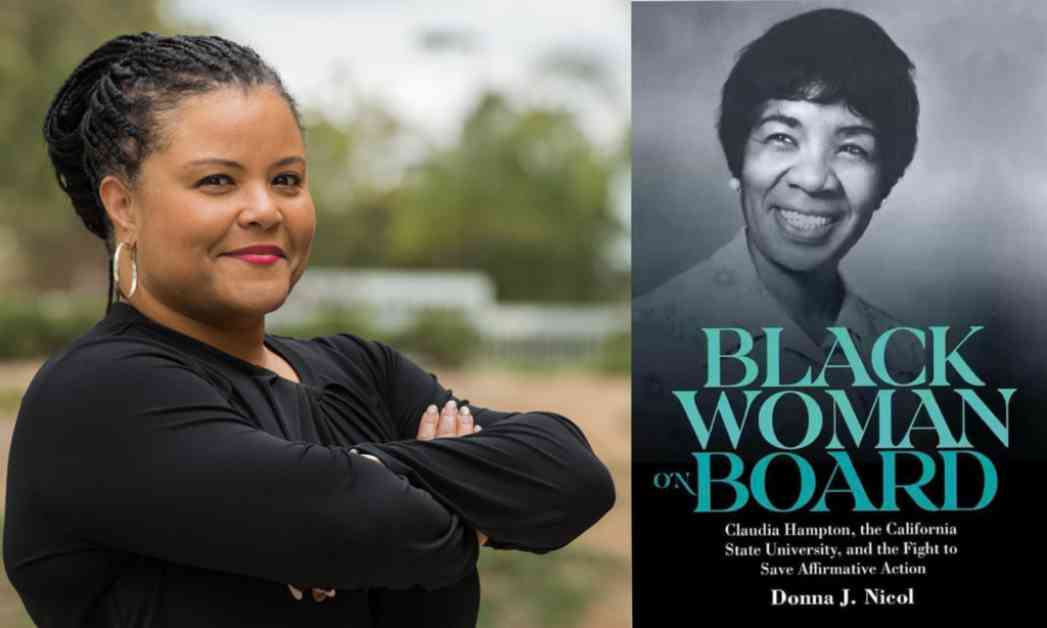Impact of Cal State’s First Black Woman Trustee on University System
In a groundbreaking turn of events, Claudia Hampton became the first Black woman to serve on the California State University board of trustees, appointed by none other than former Governor Ronald Reagan. This historic moment has sparked intrigue and curiosity, leading to the publication of a revealing book by Donna J. Nicol, associate dean at Cal State Long Beach, shedding light on Hampton’s journey and legacy within the CSU system.
Claudia Hampton’s Strategic Diplomacy
As detailed in Nicol’s book, Hampton’s tenure on the Cal State board of trustees was marked by strategic diplomacy and masterful tactics. Initially sidelined in informal discussions, Hampton navigated the board dynamics by leveraging her influence through vote-trading and hosting dinners to ensure her voice was heard in crucial decisions. Despite facing racism and discrimination, Hampton’s perseverance and skillful maneuvering enabled her to advocate for policies benefiting low-income students of color, leaving an indelible mark on the CSU system.
Legacy of Advocacy and Progress
Hampton’s advocacy for affirmative action programs and commitment to equity resonated far beyond her time on the board. Her efforts led to the creation of the State University Grant program and a scholarship for underserved students in Los Angeles, showcasing her dedication to fostering inclusivity and opportunity. Additionally, Hampton’s brainchild, the California Academy of Mathematics and Sciences, continues to thrive at Cal State Dominguez Hills, a testament to her enduring impact on education.
Relevance in Today’s Context
In light of recent developments such as the Supreme Court’s decision on race-conscious admissions, Hampton’s story offers valuable lessons for contemporary discussions on diversity and policy-making. Nicol emphasizes the importance of diverse representation on boards to enhance decision-making and foster inclusive policies. By highlighting Hampton’s pragmatic approach to advancing social change, Nicol underscores the need for a blend of radical consciousness and strategic action to drive meaningful progress.
Through the lens of Claudia Hampton’s transformative journey as the first Black woman trustee at Cal State, readers are invited to reflect on the enduring power of advocacy, diplomacy, and perseverance in shaping institutions and effecting change. Hampton’s legacy serves as a poignant reminder of the untold stories and unsung heroes within the realm of governance, urging us to recognize and celebrate the impactful contributions of those who work tirelessly behind the scenes to uplift marginalized communities and advance social justice.
